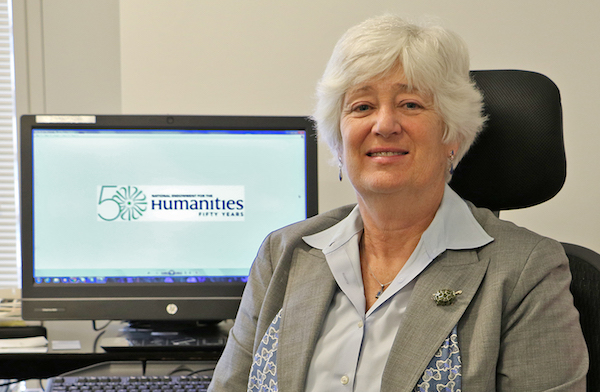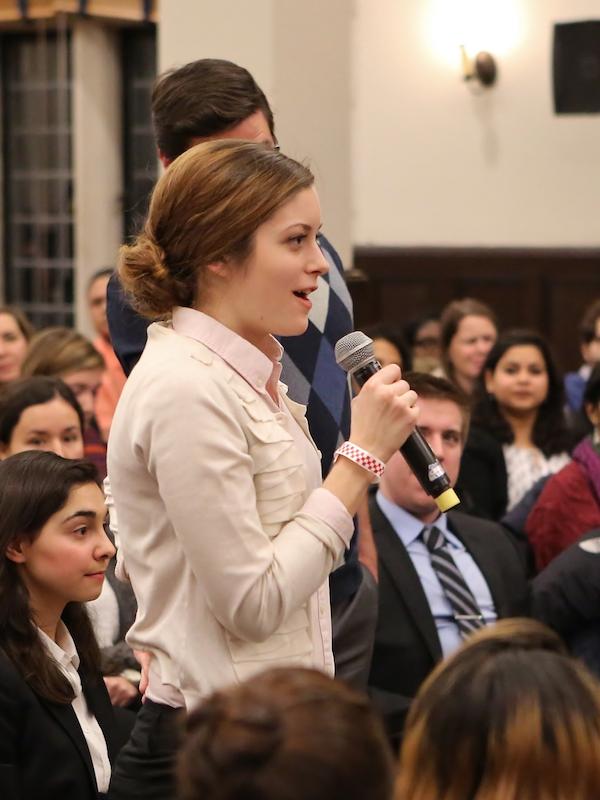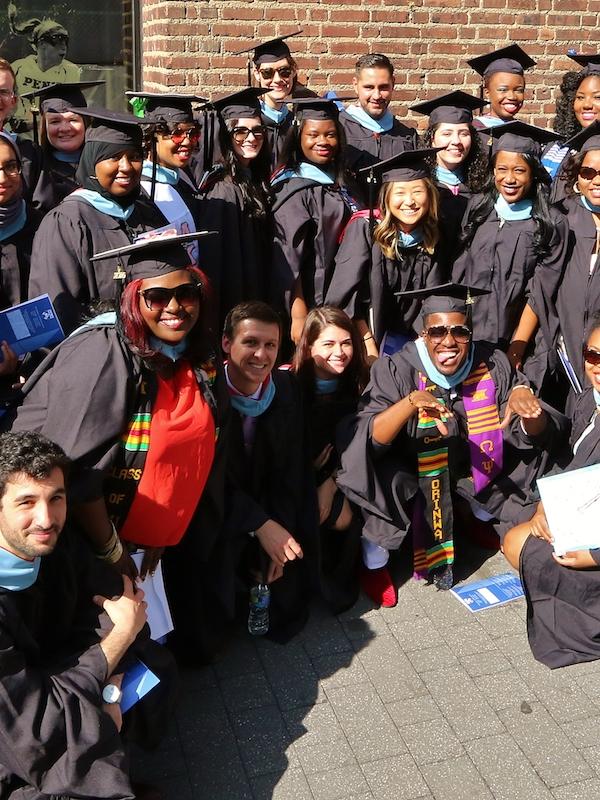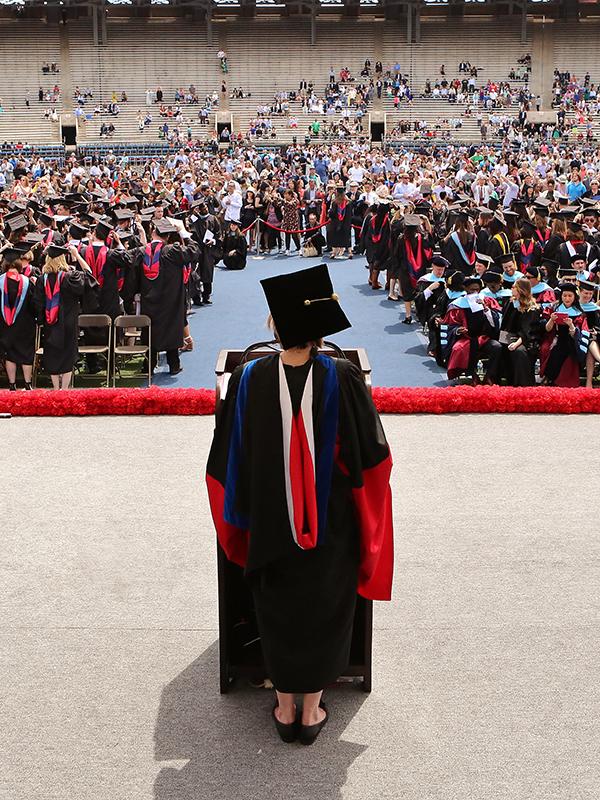Making the Case for the Humanities
“The value of a liberal arts education lies in critical thinking skills, effective communication skills, an understanding of the historical context of our world today, the ability to understand and appreciate the worldviews of others, and the capacity for lifelong learning.”
by Lini S. Kadaba
To Margaret “Peggy” Plympton, GRD’11, a liberal arts education—regardless of one’s career path—represents a timeless foundation for success. But in a higher education environment of limited resources and increasing focus on workforce preparation, the study of traditional liberal arts subjects such as the humanities, social sciences, and abstract math and science can prove a tough sell.
And therein lies the challenge for educators, says Plympton, deputy chair of the National Endowment for the Humanities. “How do we make the case that these are investments worth making?” she asks.
One clear answer comes through the daily work of Plympton and others at NEH, an independent federal agency that funds programs in language, literature, history, philosophy, archaeology, ethics, and other humanities subjects around the country. The agency’s website claims a central role for these disciplines in the life of the nation: “Because democracy demands wisdom, NEH serves and strengthens our republic by promoting excellence in the humanities and conveying the lessons of history to all Americans.”
Appointed to her post in January 2015, Plympton oversees operations, with a budget of $150 million and 160 employees. In her role, she says, she looks to build partnerships that advance the humanities while getting the most bang for the taxpayer buck. Some of NEH’s hundreds of grants have sought to support cultural institutions, strengthen teaching and learning of the humanities in both schools and colleges, and encourage original scholarship.
Plympton has embraced the value of the humanities and the larger sphere of the liberal arts since her undergraduate days as a Latin major at Wellesley College in Massachusetts. “It’s a role for higher education writ large to be able to help people understand, ‘Why does it matter?’ Why is it worth it for students, but also why is it worth it for all of us?” she says. “The value of a liberal arts education lies in critical thinking skills, effective communication skills, an understanding of the historical context of our world today, the ability to understand and appreciate the worldviews of others, and the capacity for lifelong learning.”
Her own career, largely spent in higher education finance and administration, has taught her firsthand the benefits of these habits of mind. “Just learning accounting might get you your first job, but it’s absolutely not going to equip you for a career,” she says.
Plympton applauds schools with professional programs that still demand a holistic approach to education. She cites her previous employer, Lehigh University in Bethlehem, Pennsylvania, which encourages future engineers to develop a broad, multidisciplinary perspective. After all, they will need to understand client needs and communicate ideas to those in other fields, she says.
At Penn GSE, Plympton honed her skills in the Executive Doctorate in Higher Education Management program, earning her Ed.D. while picking the minds of a “cadre of fellow travelers”—her cohort of twenty-five classmates progressing through the program together. “My cohort members were instant supporters and sources of information,” she says. “I really think that’s the most important part. We still keep in touch.”
After a stint as an executive search consultant, Plympton got the dream opportunity at NEH. Education, she says, is the thread that runs through her career and drives her work. “I care deeply about how our nation prepares college graduates,”she says. “Helping colleges and universities provide educations that matter is what gets me up in the morning.”
This article originally appeared in the Spring 2017 issue of The Penn GSE Magazine.




